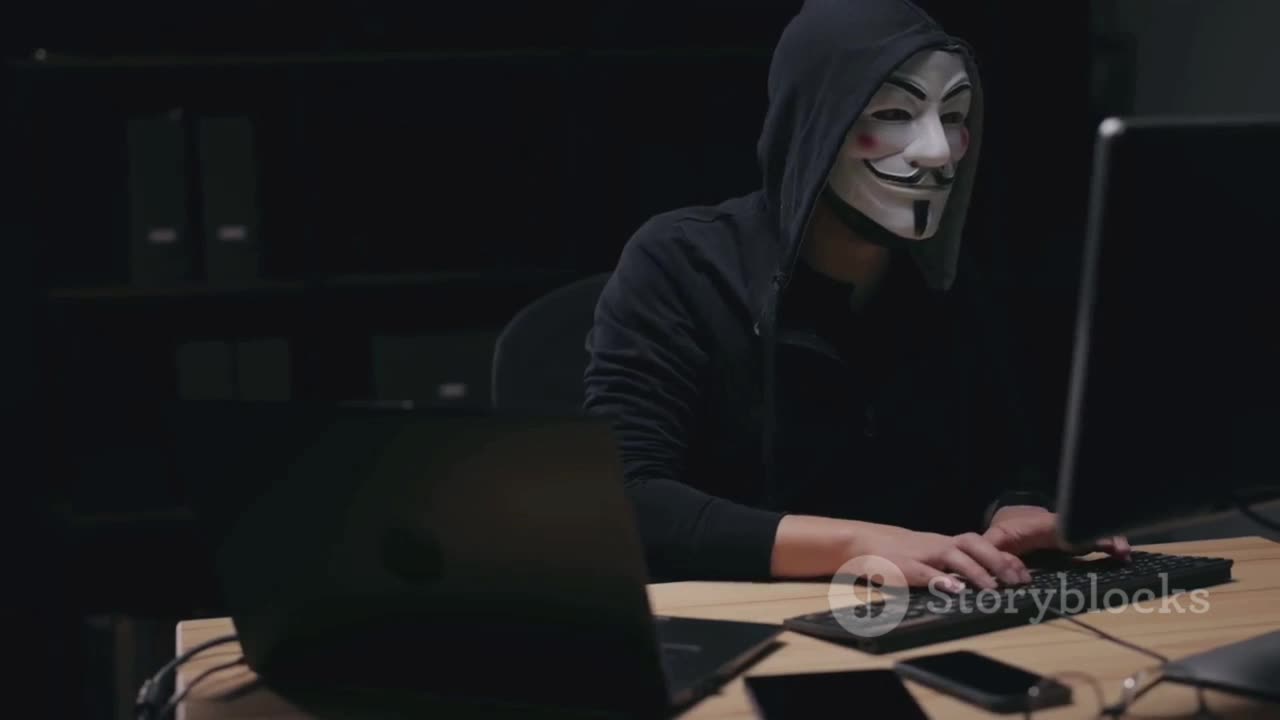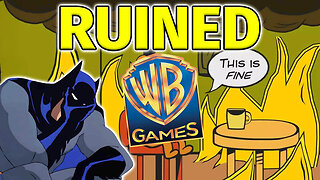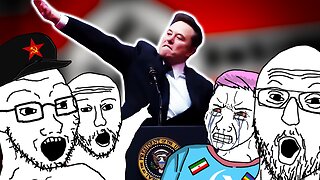Premium Only Content

Exploring the Mindset of the Average YouTube Troll.
Exploring the Mindset of the Average YouTube Troll.
The YouTube troll occupies a curious place in the digital ecosystem: often emboldened by anonymity, they thrive on negativity, disruption, and the illusion of power. To understand their mindset, it’s essential to examine the motivations and behavioural patterns that define their online activities. Like traditional bullies, trolls seek to dominate and control their targets, but with an added layer of detachment afforded by the digital medium.
A Reluctance to Face Accountability.
One of the defining traits of the YouTube troll is an aversion to accountability. They revel in their ability to post inflammatory comments or launch personal attacks without the fear of real-world consequences. However, this illusion of freedom collapses when their words, deeds, and actions are mirrored back at them. Trolls struggle with the cognitive dissonance of seeing their own behaviour reflected in a way that demands responsibility. When confronted, they often deflect, deny, or retreat, portraying themselves as the victim of "unfair" scrutiny.
A Desire for Impunity.
Trolls crave impunity—a condition where they can act without repercussions. They want to disrupt and demean freely, confident that their actions will go unnoticed or unchallenged. This impunity fosters a sense of superiority and entitlement. But when their victims fight back or remind them of their behavior, trolls often spiral into indignation. Their cries of injustice, ironically, mimic the very complaints they dismiss in others, revealing their deep-seated fragility.
A Need to Silence Their Targets.
Like bullies, trolls aim to isolate and silence their targets. Their power lies in the belief that their words can cause harm without reprisal. They weaponize silence, hoping their victims will suffer quietly, too intimidated or exhausted to retaliate. Trolls thrive on this perceived imbalance, but when the scales tip, and their victims push back, trolls are quick to adopt a stance of injured innocence.
Emotional Immaturity.
The troll’s behaviour often stems from emotional immaturity. They operate in a space where immediate gratification takes precedence over long-term thinking. Their comments are designed to provoke an instant reaction—a laugh, an argument, or a display of hurt. The consequences of their actions rarely register, as they remain detached from the real-world impact of their words.
A Reflection of Their Own Insecurities.
Ultimately, trolling is often a projection of the troll’s own insecurities. By targeting others, they distract from their vulnerabilities. Holding a mirror up to a troll not only forces them to confront their behaviour but also highlights the personal shortcomings that drive it. This is why trolls react so poorly to accountability; it disrupts their carefully constructed facade and exposes the underlying issues they seek to hide.
In Conclusion.
The average YouTube troll is, at their core, a bully operating in a digital playground. They seek control, revel in impunity, and demand silence from their victims. But their bravado masks a fragile ego, one that cannot withstand scrutiny or accountability. By understanding their mindset, we can better address their behaviour, holding them accountable for their actions while refusing to let their negativity define the online experience.
-
 2:55:24
2:55:24
Jewels Jones Live ®
1 day agoWEEK ONE IN REVIEW | A Political Rendezvous - Ep. 107
65.2K21 -
 1:33:29
1:33:29
Michael Franzese
1 day agoTrump Wastes No Time: Breaking Down Trump’s First Week Executive Orders | LIVE
83.4K62 -
 1:26:44
1:26:44
Tactical Advisor
9 hours agoTrump Starting Strong/Shot Show Recap | Vault Room Live Stream 015
51K8 -
 10:18
10:18
MrBigKid
5 hours ago $1.27 earnedInsanely Compact Hunting Tripod you HAVEN'T heard of... Revolve
24.9K2 -
 20:29
20:29
marcushouse
12 hours ago $5.40 earnedUnleashing the Power of SpaceX's Starship: Why is it a Big Deal!?
64.1K9 -
 10:46
10:46
Rethinking the Dollar
1 day agoTrump Knows 'The Real Threat' To Your National Security
44.3K13 -
 17:13
17:13
Degenerate Jay
8 hours ago $0.93 earnedWB Games Is Falling Apart
26.2K3 -
 9:07
9:07
Bearing
11 hours agoElon Causes a Stir 🤣
25.8K49 -
 8:41
8:41
BIG NEM
1 day agoMeet Tommy: He's a 40 Year Virgin
16.9K2 -
![EP. 151 - Become a Paid "Citizen Journalist" [your]NEWS - Meet Sam Anthony](https://1a-1791.com/video/fwe2/68/s8/1/T/E/Z/5/TEZ5w.0kob.2-small-Live-with-Restream-January-.jpg) 1:09:02
1:09:02
Kat Espinda
1 day agoEP. 151 - Become a Paid "Citizen Journalist" [your]NEWS - Meet Sam Anthony
13.6K8